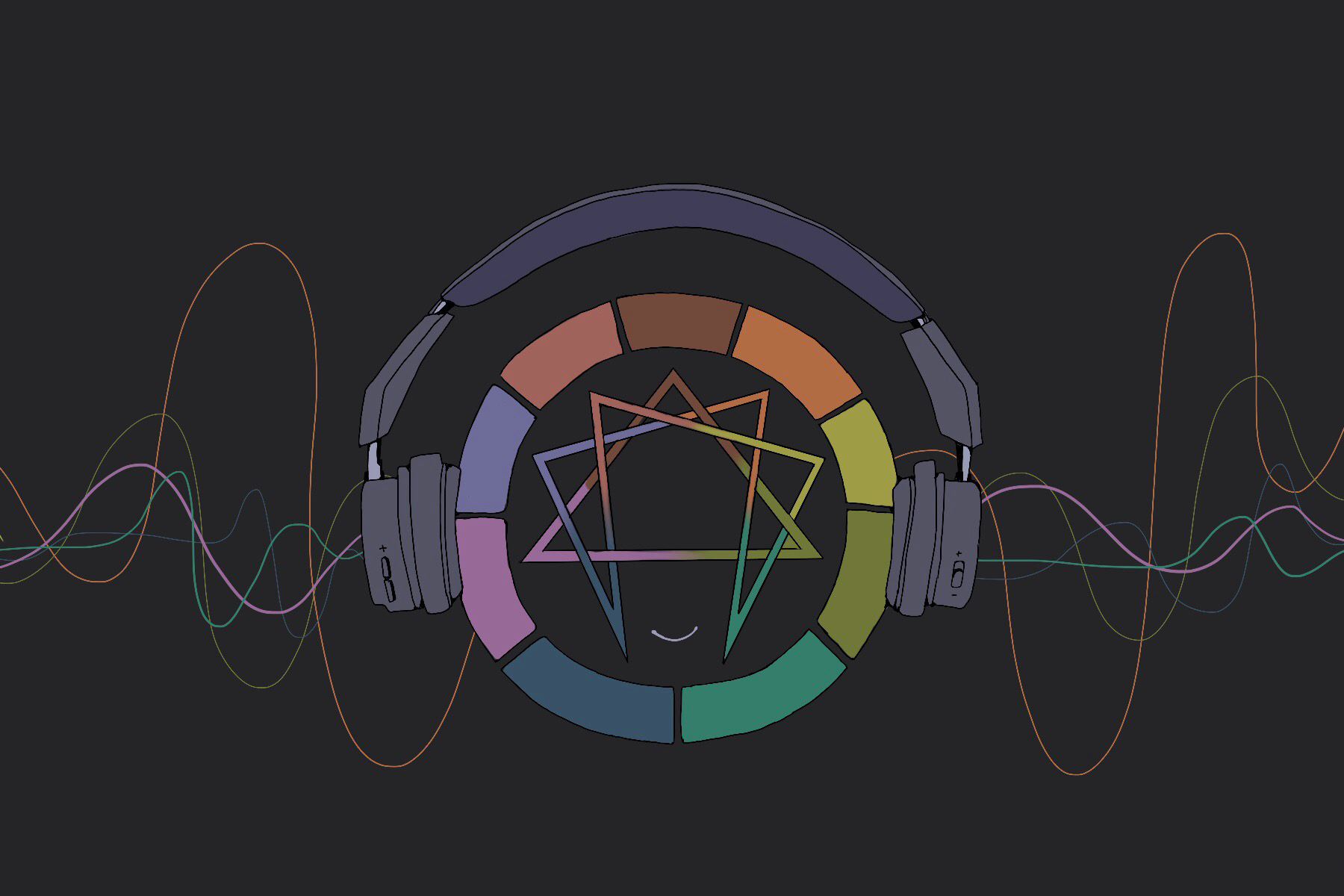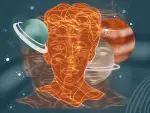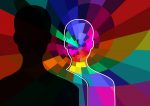Ryan O’Neal has written under the name “Sleeping At Last” since he was fifteen. While his music is released in singles, he bundles completed sets into EPs which then become compiled into albums. With the completion of his latest song, “Atlas: Nine,” he has finally finished the album “Atlas II.”
In “Atlas II,” which has been O’Neal’s main project since 2014, when “Atlas: Year One” released. In the first “Atlas” album, O’Neal focused on the awe inspired by the cosmos. Following that theme, “Atlas II” focuses on involuntary human development. The album encompasses five EPs: Life, Senses, Emotions, Intelligence and The Enneagram of Personality.
The Enneagram EP is the last to appear on the album. There is a song for each of the nine personality types, and each is said to encompass that type’s “redemption,” as it showcases each type at its worst and its best.
To ensure that each song would be imbued with the essence of each type, O’Neal stipulated that the additional guest artists in each song would be of whichever type themselves. Additionally, each song contains what O’Neal refers to as “fingerprints” — short sound clips from his close friends and family of each type, hidden within the song. Where you might hear the faint laugher of children or the sound of trickling water, there is a fingerprint.
1. Type One
The type one’s song begins with a flurry of steady sounds swirling in time to the tick of a clock. Ones are concerned with integrity and correctness, and so when not rooted in a sense of hope can become fixated on things like cleanliness and punctuality. The song is meant to depict a conversation between ones and their inner critics, with ones slowly winning out as they realize the truth about themselves and the world — grace requires nothing of them. Their aspiration to perfection is better channeled into building solid relationships with others based on a resolute hope toward life as they release their grip just a little and let the world back in.
2. Type Two
Type twos are widely considered to be the caretakers of the world, more concerned with others’ safety than their own. The song “Atlas: Two” reflects this in the number of times it repeats the promise “I will love you without any strings attached.” Within the lyrics of the song, twos learn to consider their own wellbeing in addition to those they care for, and this sense of self-love as well as love for others becomes the redemption of the type two.
3. Type Three
To a type three, nothing is more invigorating than praise. More than any other type, threes fear their carefully-designed facade cracking open and, yet, that same thing is their greatest desire. The song condenses the big personality of threes into a soft piano as O’Neal speaks directly to the heart behind the mask.
4. Type Four
In the case of the type four, individuality is paramount. In accordance with this, O’Neal crafted the four’s song to reflect the deeply personal emotions and experiences the four holds dear. The song speaks of magnificence, ending in the realization that magnificence may be found in ordinary individuals as much as in exquisite art.
5. Type Five
Of all the types, the type 5 is the most private. Half their song is instrumental, as soft instrumentation symbolizes the deeply internal thought processes that the five lives in. Only after over a minute of lyrical silence do the lyrics begin, signaling the slow opening of the five’s heart. As type fives struggle to understand the inner workings of the world, they find that no algorithm is complete without accounting for the expanse “hidden in heartbeats, exhales / And in the hope of human hands.”
6. Type Six
For the type six’s song, O’Neal tapped into the anxiety of the six right from the beginning with the lyrics “I woke up so worried that the angels let go.” Throughout the song, the six finds courage, ultimately asking, “Is it courage or faith / To show up every day? / To trust there will be light / Always waiting behind / Even the darkest of nights.”
7. Type Seven
Type Sevens love to keep moving and are usually the brightest star in any room. Underneath, though, the seven’s drive to keep moving can extend into an unhealthy fear of standing still. The seven’s song is the most cheerful of the nine, and their joyful personality is well-shown despite their inner fear. Throughout the song, sevens learn that standing still for the sake of those they love can be a blessing and, in stillness, they lose no part of their personality.
8. Type Eight
In “Atlas: Eight,” O’Neal depicts the inner intensity of the type eight through the sudden shifts in volume and tonality within the music itself. Strong and powerful chords abruptly transform into soft piano as eights slowly learn to risk their heart with vulnerability in exchange for love.
9. Type Nine
The final song of the EP as well as the album, “Atlas: Nine” represents the soul of both the type nine and of O’Neal’s project itself. As O’Neal is a type nine himself, this song was especially challenging for him. The result is an intimately personal while universally relatable piece with a tone unlike any other in “Atlas II.”
The song was designed to be simple, so the only components are the vocals and piano by O’Neal, a violin and a high school choir. O’Neal’s own fingerprint lies in this song — the sound of his dog snoring as she sits by his piano while he works. Mere days before the release of “Atlas II,” his dog passed away, and the fingerprint became all the more special.
Each type depicts a different aspect of the same human story — one of redemption. O’Neal spent months on each song as he studied each type with enneagram expert Chris Hueurtz to represent each to the best of his ability. Hueurtz guest-starred on the “Sleeping At Last Podcast” over the last nine episodes as he and O’Neal discuss each of the types with thoughtfulness and depth.











